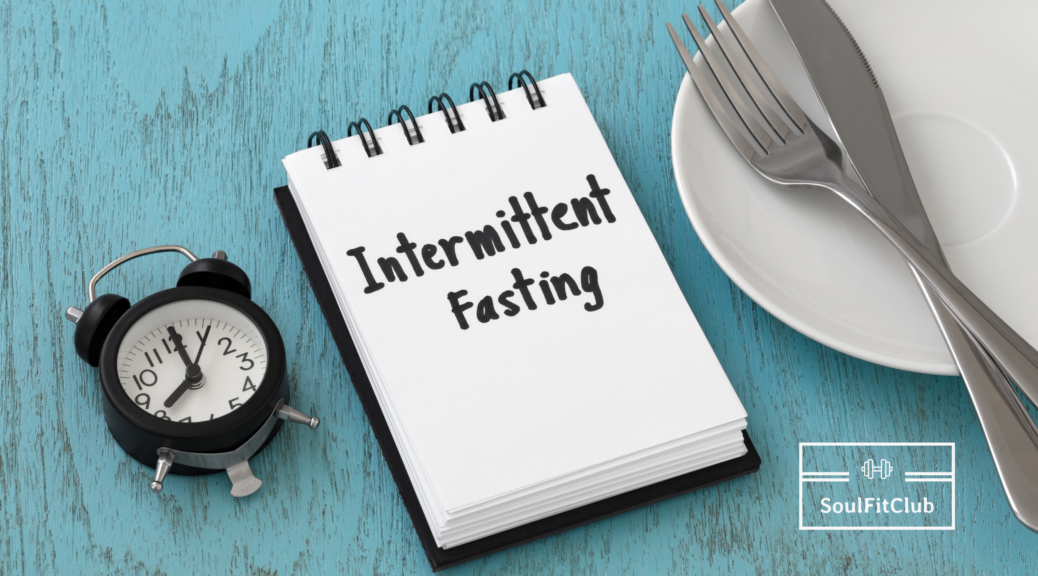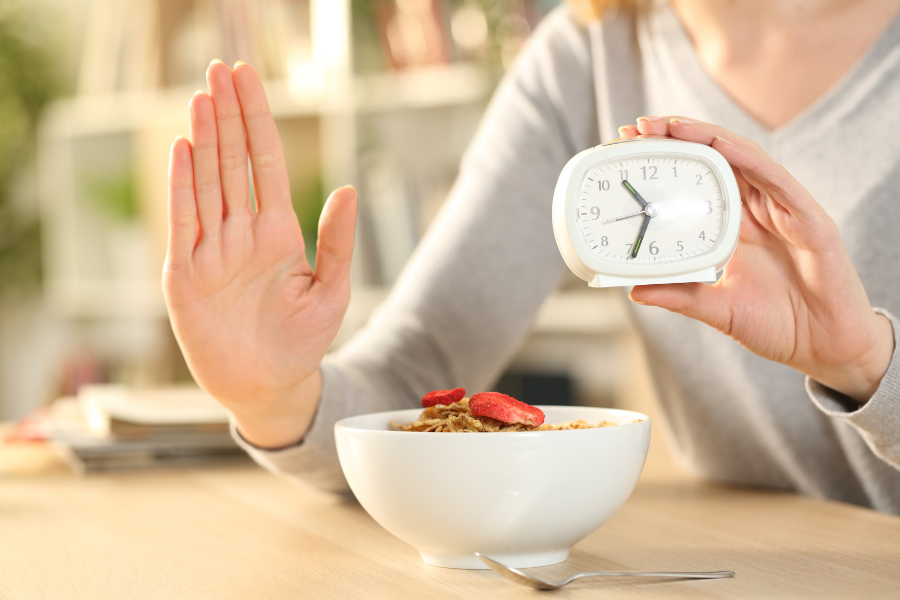
Intermittent Fasting – Is it for you?
Fasting?
Do you mean like…starving?
Intermittent fasting has gotten a lot of press lately. A lot of people seem to be using this strategy to help them lose weight. But isn’t “fasting” just “starving”? I mean, I know that when I was a teenager (circa 1980-90s), it was common practice for models to stop eating a few days to get ready for a photo shoot. So how is this different from just stopping eating to drop weight quickly?
What do I mean by fasting? Basically, any time you go without consuming more than 50 calories in any 3 hours, you are fasting. And overnight, you do not need to eat anything. Your body needs that time to process and repair and this time without new food gives it time to do that. A huge cause for high blood sugars is never cutting off that constant stream of glucose. Eating at night or through the night really escalates the diabetes game. Which usually also makes you gain. I would guess if you polled most people who have been 50 or more pounds overweight in their life and/or had issues with fasting glucose numbers in the morning, you would find that they also had the habit of nighttime snacking. A bedtime snack. It is one of my absolute worst habits that I have worked so very hard to change. For me, it started as a child. A bedtime snack was a regular thing. It was a part of every single day. It was an extensive part of my calories as a young adult because I had been so swamped all day long. Dinner sort of rolled right into snacks, and then I certainly was not going to be hungry! Ice cream would fix that! I just know that I am not alone. The bedtime snack is a ritual across this country. I know it is not unique to my household!

Getting started with fasting is as simple as cutting off food an hour or two before bed and not getting up in the night for any type of snacks. If the idea of eating at night sounds crazy to you, perfect! So happy this has never been an issue for you! But obese people often get up at night and eat. Have I? You bet. No shame here. Do I do it now? Nope. I figured out that it was a key to my weight loss and stopped the behavior. I am always aware of it, though. I do still think of food when I wake up in the night sometimes. Addiction runs deep. Even if you do not feel “addicted” like me, I bet some of you have had nighttime eating habits you would like to improve. Fasting after 8pm and letting that ride until 8am can be a great way to start fasting. 12 hours off food can be an excellent strategy for weight loss because it eliminates some calories consumed before.
Studies regarding fasting and its impacts on weight loss are mixed. Most of them show participants lose weight when a form of fasting is implemented, but they are no more successful at weight loss than those who restrict calories. Both strategies seem equally as effective for losing weight. And many people find fasting quite tricky. Dealing with hunger and stopping the actual eating of food can be challenging for people to overcome. If you are used to constantly feeding hunger and never taking control like that, it can be a struggle! But it can also be empowering. You are finally taking control back. You choose what and when you are eating, and you are choosing to support your health and goals instead of giving in to cravings or using excess food to cope with whatever emotion or stressor you are facing. If you are a compulsive overeater, this may be new for you! Even if you have been “dieting” and losing weight using calorie restriction. People who misuse food have a crazy way of manipulating diets. We save calories for specific occasions. If we eat on certain days and not as much on others, the scale will be down on the days we weigh in. And for me, even when I am staying in check with my nutritional goals, I still can get really obsessed with food. What comes next? Where am I going this week? What will be served? What will I do? I become hyper-focused on the food. My husband will even say he is sick of hearing about food. Or witnessing me plan, journal, and fuss around food. Fasting can be a strategy to cut the compulsion for a bit in a safe and controlled way. Even if that only means you do it overnight. That can be enough for many.
But what about longer? Are there advantages to that? Studies at John Hopkins School of Medicine have shown fasting can help keep away neurological diseases like Parkinson’s and Alzheimer’s and improve mood and increase memory. I can tell you I feel the advantages of fasting in regulating my depression. I definitely feel more mentally focused when I fast for 12 hours a day or especially after a longer fast such as 24-60 hours.
Research has also shown fasting to be helpful for people with pre-diabetes. If you have a fasting blood sugar in the morning above the 90s, you might want to consider fasting to help rid your body of excess glucose and increase insulin sensitivity. And if you have high blood pressure, fasting has been shown to lower it! In fact, fasting is quite beneficial for cardiac health. It can help lower blood lipids, blood pressure, and inflammation which can all help your health!

But in the end, fasting is just one potential tool. It is not a magic bullet. And if you cannot sustain it, then it does not work for you! But, if you find advantages like I do, it can be something you bring out when you feel you need it! And if you are not sure if you need it? I suggest you start doing some simple glucose testing in the morning upon waking. See if those numbers land in the 80-90 range. If they are above that? Something should change. Fasting might get you there.
A group of people may NOT want to try fasting, and I feel it is essential to mention it. As I was researching to write this post, I also found some stories from people stating that fasting actually pushed them into eating too little overall or binging later. Some state that fasting actually feeds into eating disorders for some people. I can see how that might be! I have seen it in my clients. Some feel eating only one huge meal a day is best for them. But the trick is learning to feed your metabolism throughout the day to keep it going but not doing too much that you set off excessive hunger, too high or too low glucose numbers, or the feeling that you want to binge because you just “starved” for 24 hours. It is crucial to find the balance that works best for you! Fasting may be a tool that belongs in your weight-loss toolbox! Or, it may not fit best for you! Follow your instincts to design the best plan to fit your situation. Reach out if I can help!